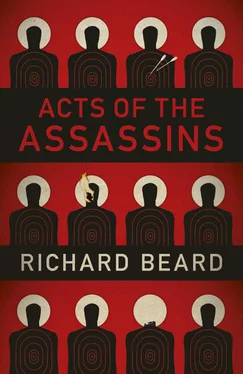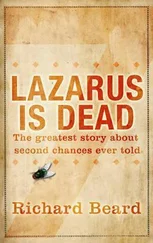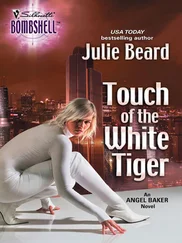Claudia spends time on the phone to Valeria, excusing the delay, proposing fresh explanations for Baruch’s excessive behaviour. Stress disorder, exhausted in the line of duty. Also, they need another day or so because two Jewish corpses on the same night in Caistor, one of them a disciple of Jesus, is not routine police work. There are loose ends.
‘Yes, yes,’ Claudia promises, ‘as soon as we can. We can’t leave any sooner than that.’
Valeria phones back. What the hell are they playing at, really?
We’re not playing, Claudia thinks, we’re being sensitive to each other’s needs at a difficult time. Not what Valeria will want to hear. ‘We’re questioning Bartholomew. He lacks physical strength for the return journey.’
She could go on, and does. Bartholomew is frail from his coma, and without careful handling could suffer a relapse — a lie Claudia tells beautifully, because most of the time they can’t even find him. Bartholomew is out, he’s about, doing the work that disciples do.
Meanwhile, his protectors discover that in the slowness of Caistor a Speculator can avoid the headache of Jesus and global terrorism and Valeria’s complex casework. The displaced Romans enjoy bright English afternoons, savouring this time between horrors when children can walk home safely from the grammar school. In the market square a parish councillor raffles tickets for Caistor in Bloom. Under striped tarpaulins, on Wednesdays and Saturdays, the market has tables of vegetables, meat, pet food, and Cassius Gallio honestly can’t see that the world is going to end, not soon, not here in provincial England. Simon the disciple of Jesus may as well not have been sawn in half here. Life continues as if he never existed.
At the church on Sunday Bartholomew speaks from the pulpit, unaffected by Simon’s death. He is confident that what will be will be, which seems to include his return to health and a renewed commitment to Jesus. Cassius Gallio slides into a pew near the back, and feels a twinge of metaphysical envy: to feel a sense of destiny would be a true consolation. He thinks about his frailties and his failures and corrects himself — but only if that destiny were favourable.
He listens to Bartholomew advising the older churchgoers not to be scared of dying. Then Bartholomew reassures the middle-aged who are frightened of the death of the old, and, in smaller numbers, he consoles the young frightened by the fear of the middle-aged. Bartholomew the preacher promises to honour the strongest and most urgent human wish: that we should never die. In exchange, the parishioners of Caistor bake cakes and sort jumble at the town hall on a Thursday. Simon is dead, yet their belief in Jesus and eternal life remains alive.
Caistor already has a stipendiary vicar, a bearded graduate of Sunday schools, who repeats stories he knows from Simon. Bartholomew stands aside with clasped hands and hears about the miracles of Jesus, the sayings of Jesus, the death and resurrection and ascension of Jesus. James, Jude, Thomas, Philip, James, now Simon himself. All eyewitnesses, all dead, but the stories live on. The parishioners of Caistor sing ‘Thine is the Glory’.
In the high-ceilinged Church of St Peter and St Paul the hymn resonates with longing fulfilled, and in a moment of weakness Cassius Gallio wants everything they believe to be true. Jesus promises justice and love and eternal life. That would be a lovely and perfect solution to injustice and hate and death, thank you, but from experience he has his doubts.
After the preaching and the singing, Bartholomew attends to the misfortunate of Caistor. Gallio watches and learns, loyal to his vocation as a Speculator, as does Claudia. They tell Valeria this is what they’re doing, and this is what they do. Bartholomew picks up where Simon left off. He performs his small repertoire of country doctor tricks, easing the ailments of the rural poor. Cassius Gallio hands him bandages and presses him for a medical opinion on Jesus.
‘Up on the cross the point of a spear went into his side. That’s right, isn’t it? If Jesus bled from the wound then at that stage of the execution his heart must still have been beating, correct?’
Bartholomew is dressing an ulcer on the leg of an immigrant farm labourer. ‘Could have been. I’d need more information to confirm a diagnosis.’
‘So clinically he was still alive?’
Bartholomew shines a penlight into the milky eyes of an ancient woman who as a child was blessed by a retired naval chaplain who’d opened a gate for Queen Victoria. Everyone tells him a story.
‘At that point yes. Probably.’
‘Thank you. I appreciate your honesty. Where were you during the crucifixion? Where did the disciples go?’
‘I’m sorry,’ Bartholomew says, ‘I’m busy.’
The people of Lincolnshire keep on coming, and Gallio feigns an interest. With Claudia’s help he hands out hot meals and financial advice to people who believe in Jesus instead of understanding the macroeconomic pressures of a global civilisation. He makes crutches for the lame, and forces himself to be patient with children, because if Bartholomew trusts him he’s more likely to confide his secrets. Gallio shows him the photos of Jesus on his phone — he’s a late starter, but he’s committed to finding Jesus.
‘Is that him?’
Bartholomew should know — Jesus sad but tough, with a crown of thorns, by Antonello da Messina.
‘Yes, that’s him.’
Jesus muscular but wary, again with thorns, by Peter Paul Rubens. ‘What about this one?’
‘I’d say so. The likeness is certainly apparent.’
Gallio swipes again: Jesus frail and wide-eyed, bent-backed beneath the weight of the cross, by El Greco. ‘Jesus?’
‘What a fantastic picture. Yes.’
Jesus angry but in control, under the weight of the cross again, by Titian. ‘Is this one Jesus?’
‘Oh, very good. Maybe my favourite. See how he captures the mouth.’
And so on. Bartholomew asks to see more, and for once Gallio has an internet connection so the pictures keep on coming, and Bartholomew swears that every image is recognisably Jesus. Gallio starts to protest, they can’t all be Jesus, but the slideshow is interrupted by a boy from a travellers’ camp near Market Rasen. He has an open sore on his forehead, like a lozenge of red stained glass. His mother is carrying a baby with maggots in its eye.
That’s enough compassion for Cassius Gallio, for one day. Bartholomew can manage on his own.
It is raining. Outside the window of the White Hart pub the cone of rain lit by a street light changes the orange beam into a showerhead. Gallio and Claudia sit on the twin beds, notebooks in hand. They have a report to draft, but neither is confident about where to start. Simon, Baruch, Bartholomew. Line or curve. Circle or square. Stay or go.
In an effort to hurry them up, Valeria has forwarded the latest forensic results. She insists that the death of Simon doesn’t negate the threat of an attack by Jesus or his surviving disciples. The security level remains Orange, High. And even though Baruch killed Simon, with a witness present, the assassins who murdered the other disciples haven’t ceased to exist because of Baruch’s lapse into madness.
Bad Luck . Cassius Gallio writes the heading in his notebook, underlines the two words twice. Joins up the underlines to make a long thin rectangle. Valeria can worry away at Jesus and his disciples all she likes, but the Complex Casework Unit can’t correct a random universe. They’re wasting their time. This is what the report should say, and it explains why Gallio doesn’t know where to begin. His adult life has been wasted, if the universe turns out to be random.
According to Valeria’s lab results, the saline solution on the glass from Joseph’s bin conforms to the salt composition of human tears. The DNA extracted from this trace matches blood on the piece of wood from Babylon, found by Gallio beneath Thomas’s bed. Mementos. Someone collected the tears of Jesus; Thomas kept a splinter of the True Cross as a reminder of the man he agreed to follow. They have scientific confirmation that Jesus existed and that he suffered, but even with modern forensic techniques no more information than that. Jesus existed. That doesn’t mean he exists. There is no obligation to go looking for him, or to believe that he’s coming again.
Читать дальше












